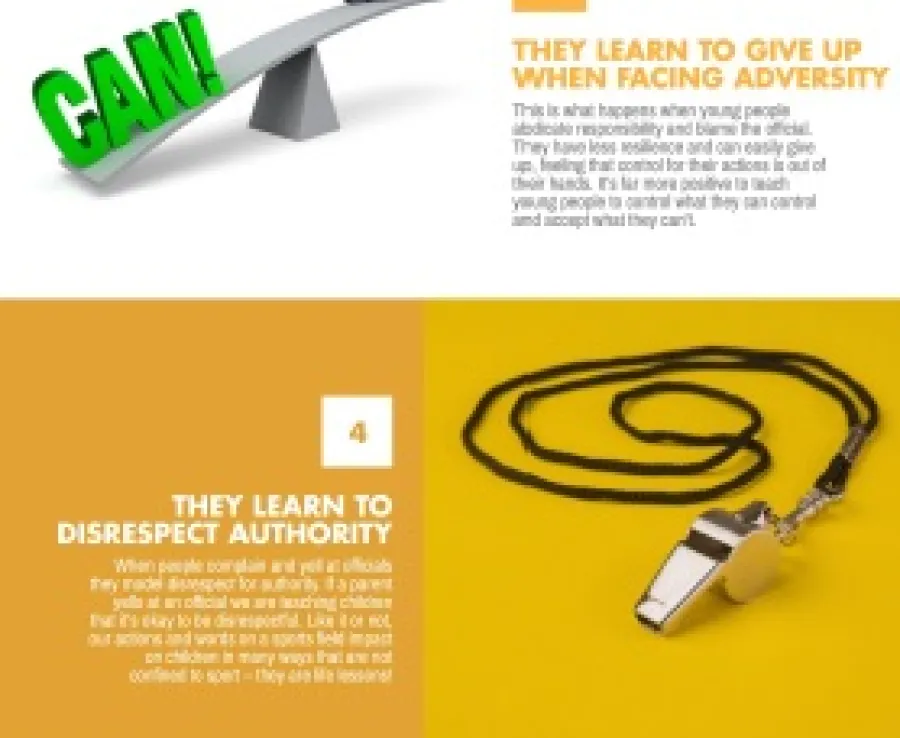In March the community website from the USA, Switching the Field, published an interesting article that resonated with over 17,000 people on the Play by the Rules Facebook page. Switching the Field describes themselves as “humble members of the greater soccer community doing our part to help the game.”
The article was entitled '4 ways yelling at referees is hurting our children'.
Here is an adaptation of the article – the 7 ways why yelling at officials is hurting children. At the end you can download an infographic for your own use.
- They learn that mistakes are not okay
- They learn to make excuses
- They learn to give up when facing adversity
- They learn to disrespect authority
- They have negative role models
- They learn to be rude
- They learn to be selfish
They learn that mistakes are not okay
Of course, mistakes are a normal part of sport and of life. Mistakes are okay and they are nothing to be afraid of. Unfortunately there have been many examples of young officials giving up the role because of the fear and consequences of making mistakes. And what happens then?
They learn to make excuses
Blaming the official for a result is an excuse. A lot of things happen on the field of play. There are thousands of decisions made during a game, by officials and players. To focus on one decision as the turning point and blaming the official helps young people abdicate responsibility for their own actions.
They learn to give up when facing adversity
This is what happens when young people abdicate responsibility and blame the official. They have less resilience and can easily give up, feeling that control for their actions is out of their hands. It’s far more positive to teach young people to control what they can control and accept what they can’t.
They learn to disrespect authority
When people complain and yell at officials they model disrespect for authority. If a parent yells at an official we are teaching children that it’s okay to be disrespectful. Like it or not, our actions and words on a sports field impact on children in many ways that are not confined to sport – they are life lessons!
They have negative role models
A parent is a role model. A coach is a role model. Athletes are role models. If you yell at officials, complain at decisions, even swear and become aggressive – what kind of role model for children are you?
They learn to be rude
Yelling is mostly just plain rude! Sometimes raising your voice is necessary and a natural human emotion – but there is a big difference between yelling from a sideline and raising your voice to be heard. Officials are doing their job, they are concentrating and doing their best. Interrupting this process by yelling is rude.
They learn to be selfish
Yelling is a personal reaction. It’s very likely that those around you are not yelling and are simply enjoying the game. Yelling can ruin the game for others, players and spectators alike. The selfishness of yelling can drive people away from sport. Would you want to teach selfishness to your children?
